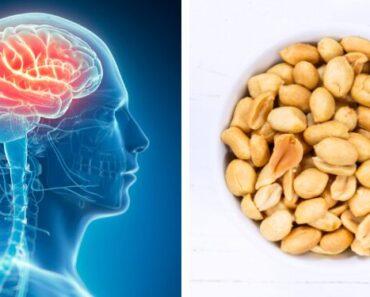Joint pain and inflammation are among the most common health challenges today – affecting people of all ages.
Whether it’s due to arthritis, an old injury, or simply wear and tear over time, the discomfort can limit your mobility and energy.
Here are 20 powerful anti-inflammatory foods that can help reduce swelling, protect cartilage, and keep your joints moving smoothly.
1. Fatty Fish (Salmon, Sardines, and Mackerel)
Fatty fish are among the richest natural sources of omega-3 fatty acids (EPA and DHA) – compounds known for their powerful anti-inflammatory effects.
Omega-3s help reduce joint stiffness and pain by lowering inflammatory markers in the body.
Studies have shown that people with rheumatoid arthritis who consume fish regularly experience less swelling and morning stiffness.
Tip: Eat fatty fish at least twice a week, or take a high-quality fish oil supplement if you’re plant-based, opt for algae-based omega-3s.
2. Turmeric
Turmeric’s golden compound curcumin is one of nature’s strongest anti-inflammatory agents. It works by blocking NF-kB – a molecule that triggers inflammation at the cellular level.
Curcumin also acts as a natural pain reliever, similar in effect to some over-the-counter medications but without the side effects.
Tip: Combine turmeric with a pinch of black pepper (which contains piperine) and healthy fat like olive oil to boost absorption.
3. Ginger
Ginger contains compounds called gingerols and shogaols, which inhibit inflammatory pathways in the body. Regular consumption has been linked to less muscle soreness, reduced arthritis pain, and improved mobility.
You can enjoy it as a tea, in smoothies, or grated into meals. Its warming effect also stimulates circulation — helping nutrients reach the joints faster.
4. Berries (Blueberries, Strawberries, and Raspberries)
Berries are small but mighty anti-inflammatory powerhouses. They’re loaded with anthocyanins – antioxidants that give berries their bright color and help fight oxidative stress in the joints.
Regular berry consumption reduces C-reactive protein (CRP) – an inflammation marker linked to arthritis. Plus, their vitamin C content supports collagen production for healthy cartilage.
Tip: Add a handful of mixed berries to your morning oatmeal, yogurt, or smoothie.
5. Leafy Greens (Spinach, Kale, and Swiss Chard)
Dark leafy greens are rich in vitamin K, calcium, and magnesium, which support bone and joint strength.
They also contain antioxidants like lutein and beta-carotene, which neutralize free radicals that damage cartilage.
Vitamin K, in particular, has been shown to reduce inflammatory markers in people with joint diseases.
Tip: Lightly steam or sauté greens to preserve nutrients while making them easier to digest.
6. Olive Oil
Extra virgin olive oil is the cornerstone of the Mediterranean diet, famous for its anti-inflammatory properties. Its main compound, oleocanthal, acts similarly to ibuprofen in blocking pain-causing enzymes in the body.
Olive oil also supports joint lubrication and protects cartilage from breakdown.
Tip: Use olive oil as your main cooking oil, or drizzle it over salads and vegetables daily.
7. Garlic
Garlic isn’t just for flavor – it’s a powerful natural anti-inflammatory and immune booster. It contains sulfur compounds that help protect cartilage and prevent the progression of arthritis.
Some studies suggest garlic helps lower cytokines, the molecules responsible for chronic inflammation.
Tip: Crush fresh garlic and let it sit for a few minutes before cooking to activate its healing enzymes.
8. Green Tea
Green tea is packed with polyphenols, particularly EGCG (epigallocatechin gallate), which has potent antioxidant and anti-inflammatory effects.
It helps prevent joint damage by reducing inflammation and slowing cartilage breakdown – especially beneficial for people with osteoarthritis.
Tip: Drink 1–2 cups of high-quality green tea daily, or try matcha for an extra antioxidant boost.
9. Chia Seeds and Flaxseeds
Both chia and flaxseeds are excellent plant-based sources of omega-3 fatty acids (ALA), which reduce inflammation throughout the body.
They also provide fiber, which supports a healthy gut – another key to controlling inflammation.
Tip: Add ground flaxseed to smoothies, oatmeal, or baked goods. Chia seeds make great overnight puddings or toppings for yogurt.
10. Walnuts
Walnuts contain more omega-3s than any other nut and are also rich in vitamin E and polyphenols, which help lower inflammation levels and oxidative stress.
Eating walnuts regularly can improve joint function and protect against cartilage degeneration.
Tip: Snack on a handful of raw walnuts or add chopped walnuts to salads for a crunchy, anti-inflammatory boost.
11. Broccoli
Broccoli is rich in sulforaphane, a compound shown to block enzymes linked to joint destruction. It also provides vitamin C, calcium, and fiber – all essential for healthy bones and connective tissue.
Including cruciferous vegetables like broccoli may even help prevent the onset of arthritis over time.
Tip: Steam or lightly roast broccoli to preserve sulforaphane content.
12. Pineapple
Pineapple contains bromelain, a natural enzyme that reduces swelling, bruising, and inflammation – especially after injuries or surgeries.
It’s particularly useful for osteoarthritis and joint pain, as bromelain helps break down inflammatory proteins in the body.
Tip: Eat fresh pineapple regularly or take a bromelain supplement between meals for best results.
13. Sweet Potatoes
Sweet potatoes are loaded with beta-carotene, vitamin C, and manganese – nutrients that combat inflammation and promote collagen repair.
Their complex carbohydrates and fiber also help regulate blood sugar, which in turn lowers chronic inflammation.
Tip: Bake or roast sweet potatoes with a drizzle of olive oil and a sprinkle of turmeric for a healing side dish.
14. Avocados
Avocados are packed with monounsaturated fats, vitamin E, and antioxidants that protect joints and reduce inflammation. They also contain cartilage-repairing compounds like phytosterols.
Some research suggests avocado-soybean extract supplements can reduce pain and stiffness in osteoarthritis sufferers.
Tip: Enjoy avocado on whole-grain toast, in salads, or blended into smoothies.
15. Tomatoes
Tomatoes are one of the best dietary sources of lycopene, a powerful antioxidant that helps reduce inflammatory compounds and protect joint tissue.
Cooked tomatoes – such as in soups or sauces – release more lycopene than raw ones.
Tip: Pair tomatoes with olive oil for maximum nutrient absorption.
16. Beets
Beets contain betalains, natural pigments that give them their deep color and help combat inflammation.
They also support detoxification and circulation, ensuring nutrients reach your joints effectively. Plus, their high nitrate content improves endurance and blood flow.
Tip: Roast, juice, or grate raw beets into salads for a colorful anti-inflammatory boost.
17. Onions
Onions are high in quercetin, a flavonoid that helps reduce swelling and inhibit inflammatory pathways. They also contain sulfur compounds that support cartilage formation.
Regular onion consumption may help relieve symptoms of chronic inflammatory diseases and protect against bone loss.
Tip: Include red onions in salads or sauté yellow onions as a base for soups and stews.
18. Dark Chocolate (70% or Higher)
Good news for chocolate lovers – high-quality dark chocolate (with minimal sugar) contains polyphenols and flavonoids that fight inflammation.
The cocoa antioxidants improve circulation and reduce joint stiffness, while magnesium in chocolate helps relax muscles.
Tip: Enjoy one or two squares of dark chocolate daily to support joint health and reduce stress.
19. Bone Broth
Bone broth is a traditional remedy for joint pain – and for good reason. It’s rich in collagen, gelatin, glucosamine, and chondroitin, all of which nourish and rebuild connective tissue.
Regularly consuming bone broth can improve joint lubrication, reduce stiffness, and support recovery from injuries.
Tip: Sip a warm cup of homemade bone broth daily or use it as a base for soups.
20. Citrus Fruits (Oranges, Lemons, and Grapefruits)
Citrus fruits are rich in vitamin C, essential for collagen production – the protein that maintains the structure of your cartilage, tendons, and ligaments.
Vitamin C also acts as an antioxidant, helping reduce inflammation and prevent oxidative damage in the joints.
Tip: Start your day with warm lemon water or snack on oranges for a refreshing anti-inflammatory boost.
The Connection Between Inflammation and Joint Pain
Inflammation is the body’s natural response to injury or infection – but when it becomes chronic, it starts to damage tissues and joints.
Processed foods, refined sugars, alcohol, and trans fats all fuel this chronic inflammation, leading to stiffness, swelling, and pain.
By replacing inflammatory foods with nutrient-rich, anti-inflammatory alternatives, you allow your body to heal naturally and restore balance from within.
Inflammation may be the root of many modern diseases – but nature provides everything we need to keep it under control.






